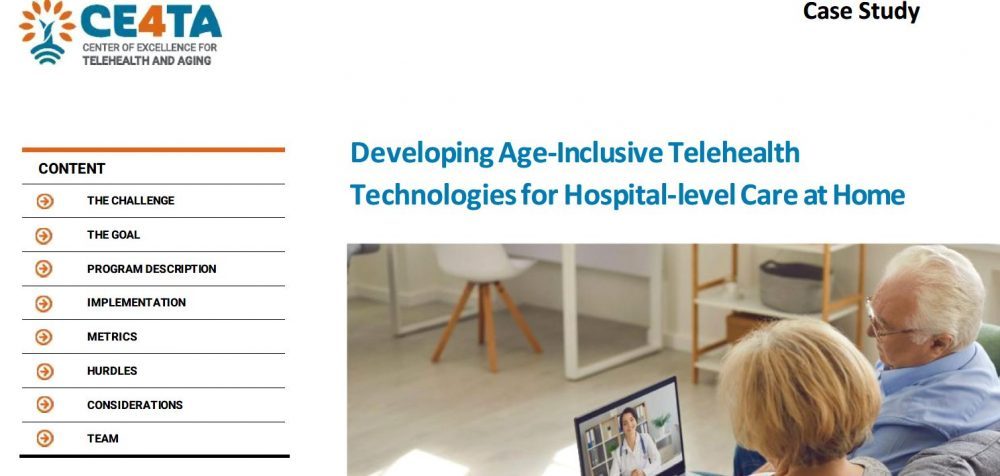This implementation guide provides healthcare providers and organizations with a comprehensive framework for delivering effective telebehavioral health services to older adults. Each behavioral health care model included offers practical examples of how to incorporate the Principles and Guidelines for Telehealth and Aging, ensuring the specific needs of older adults are met.
The person-centered care implementation strategies offer real-world examples of how healthcare providers and organizations can apply the Principle 1 Telehealth and Aging Guidelines across various clinical settings.

Case study highlighting how Medically Home’s technology and operational support are assisting health systems in delivering hospital-level care at home while addressing the unique needs of older adults.
Manuscript detailing how to create a workforce model that can be effective in improving oral health of adults 69 to 100 who live in a long-term care facility.
A review showing evidence on use of digital health technology with older adults during COVID-19 pandemic.
A paper discussing the findings from the CCARRE program whose aim is to provide care for older adults with cognitive impairment in New York City.
A qualitative study aimed to explore the benefits of telehealth for primary care physicians and their patients through semi-structured interviews.
This study aimed to increase telehealth usage among vulnerable, low-income, minority older adults by providing education on telehealth and addressing its barriers.
A study measuring telehealth’s impact in facilitating advance care planning (ACP) discussions for individuals with Alzheimer’s disease-related disorders as an alternative to in-person primary care visits.
A joint project of The Lindsay Institute for Innovations in Caregiving, VirginiaNavigator and The Daily Progress, the 2023 edition of Senior Navigator features insights and advice from thought leaders in aging and caregiving. Includes valuable insights on the use of telehealth in the care of older adults.
Research outlining possibilities for chronic care management of stroke survivors using telehealth, focusing on populations with adverse social determinants of health.

A commentary focused on the lessons and perspectives learned during the Covid-19 pandemic regarding telehealth utilization in LTCF.